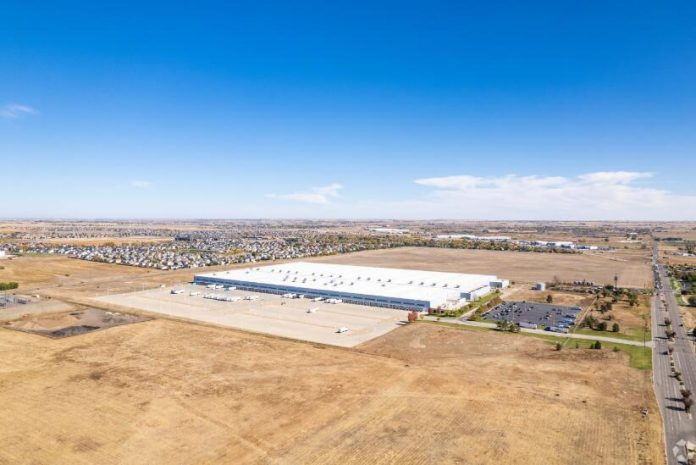Amprius Technologies has signed a letter of intent to build a 775,000 square foot battery manufacturing facility capable of producing 5 GWh of silicon anode-based lithium-ion batteries in the coming years.
To be located in Brighton, Colorado, the facility will become the first large-scale commercial advanced manufacturing center for silicon anode lithium-ion batteries by the time it opens in 2025. The facility will be built in phases, with the first phase starting with an initial 500 MWh of production at the facility which at full scale will produce 5 GWh.
The initial phase of 500 MWh will be funded in part by a $50 million grant received in October 2022 from the U.S. Department of Energy’s Office of Manufacturing and Energy Supply Chains. Amprius is among the first set of companies to announce receipt of funding from the federal Bipartisan Infrastructure Law to expand domestic manufacturing of batteries, specifically focused on U.S.-based processing of materials and components.
The initial phase of construction at the Brighton, Colo., facility is expected to create over 330 new jobs.
Following an extensive site evaluation spanning three states, Amprius selected Colorado based on its high-volume manufacturing facility. The Brighton location has 1.3 million square feet of existing factory site equipped with electrical infrastructure and structural layout designed for a gigawatt-hour scale lithium-ion battery factory. The pre-configured site reduces expected build-out costs to the manufacturer.
The Colorado facility is located closer to essential materials and transportation infrastructure, which together limits logistics and operational costs. The site exceeded Amprius’ site requirements and is expected to streamline time-to-market and customer fulfillment.
“We worked closely with the state of Colorado, the Colorado Economic Development Commission, Adams County, and the City of Brighton to align on terms that are mutually beneficial and include a comprehensive incentive proposal,” said Dr. Kang Sun, chief executive officer of Amprius. “Increasing production to meet the substantial market demand for our breakthrough silicon anode lithium-ion technology remains a priority, and we are confident this factory will allow us to scale and effectively serve the electric mobility market.”
To further intensify the focus on product and technology development while scaling up production, the company has formed two business units: Amprius Fab, to be located in Brighton, Colo., will focus on manufacturing of silicon anode batteries, while Amprius Lab, located in Fremont, Calif., will focus on the company’s advanced battery research and development efforts.
To support the company’s bifurcated manufacturing and R&D focus, Jon Bornstein, its current chief operating officer, will take on a new role to head the Amprius Lab as the division’s president. Bornstein has spearheaded Amprius’ silicon anode development and pilot production for over 10 years.
In addition to the Bipartisan Infrastructure Law of 2021, Section 45X of the Inflation Reduction Act has established the Advanced Manufacturing Production Credit (PTC). This PTC applies tax credits of up to $31 billion to the production of cathode and anode materials used in lithium-ion batteries and advanced battery minerals sourced in the U.S.
A tax credit is also included for the production of battery cells and battery modules in the U.S. based on the capacity of the cell up to $35 per kWh, and in the case of a module is based on the capacity of the module up to $10 per kWh. For a sample 75kWh battery pack, a tax credit of up to $2,625 for the manufacturer of the battery cells and up to $750 for the maker of the modules is available, according to an IRA policy note by law firm Orrick Herrington & Sutcliffe.
Amprius’ silicon anode battery cell provides a fast charge capability of an 80% charge in just 6 minutes, while its battery packs have been used in aircraft and unmanned aerial systems (drones) as well as satellites of the U.S. Army, Airbus and BAE Systems, among other customers of the company.
The company was founded in 2008 by Stanford University professor Yi Cui, director of the university’s Precourt Institute for Energy, and Mark Platshon, a venture capitalist. In May 2022, the company announced plans to list as a public company through a special purpose acquisition company (SPAC) merger with Kensington Capital Acquisition Corp., which closed in September 2022 valued at $939 million.






